- Home
- Scott Turow
Personal injuries kc-5 Page 32
Personal injuries kc-5 Read online
Page 32
Robbie, in time, again asked what he should do.
"Fire her," said Milacki. Both Tuohey and Kosic sat stonily, as though Milacki hadn't made the remark. Looking at the tape later, I had the strong impression that Milacki knew less about Evon than the other two. Robbie, as always, held to his role, and doe-ishly turned to Tuohey to confirm Milacki's advice.
"If you have an employee you don't trust, it's probably sensible to consider firing her." The mildest shrug elevated Brendan's slender shoulders, The thought was hardly revolutionary.
"But does it look like I'm guilty, if I fire her? I mean, she knows I'm hinky because I talked to her after Walter. I mean, I keep wondering. Is there something I can do to throw her off the track?"
Tuohey was long and narrow, with a thin but agreeable face. With Robbie's last remark, he retreated somewhat. The tidy gray head came up and on the monitor you could see him appraising Feaver.
"These are questions, Robbie, I think you'd best ask yourself"
"Well, I thought you'd be concerned."
"Do I look concerned? A man shouldn't wear his troubles on his sleeve, Robbie."
"Well, Judge, you and I have never talked about things-"
"And we shouldn't be starting now." Tuohey took a measure and popped out a short exasperated laugh. "Robbie, you're past the age where I can be looking after the two of you every moment. I can't call the precinct house the way I did when you and Morton were fourteen and nicking lewd magazines."
"Well, this isn't about naked ladies, Brendan. You know that."
"I do? No such thing. How would I know that, Robbie? I don't keep track of your doings. I can't. You appear in my court. You understand how I must behave. If you've done something that scares you"-skeers you-"then I'm sorry, Robbie, but I'm a judge, not a father confessor. You start telling me your sins, I've got no choice but to turn you in, and Lord knows, neither of us would care to see that." Tuohey sat straight in his chair now, delivering his brief monologue with appropriate gravity.
"He's hosing him," Sennett said with anguish behind me. But it was a better performance than mere denial. Brendan was a master, the kind of man who did not say good morning to you with only one thing in mind. Ulterior purpose clung to every remark as if it had been greased, and he was actually letting Robbie down easy with this speech, explaining his position.
"He's got to go for it," Sennett demanded. "Right now. Lay it right there. Come on, Robbie. `What do you mean you don't know what I'm doing?"'
But it did Stan as much good to coach the screen as any armchair fan. When Robbie repeated Tuohey's first name, the judge refused him with a stern rattle of his narrow face. He would hear no more. Milacki and Kosic, who had hung back, certain Tuohey would know best, now inserted themselves. Milacki actually raised a tempering finger in Robbie's direction. In the silence, Brendan Tuohey looked down and brushed some more of the confectioner's sugar from the lapels of his straitlaced suit.
"Robbie, it sounds to me like you should get yourself an attorney," he said. "Get an experienced federal man. You might want his advice."
"What am I going to tell an attorney, Brendan? What do you want me to say to him?" Sennett had anticipated Tuohey and had fed Robbie that line word for word, but Brendan was nimble.
"Tell him what you like, Robbie. Tell him what he needs to know."
"Jesus Christ, Brendan, don't you understand? She's seen a lot of stuff."
A brief, derisive sound ripped not from Tuohey but from Kosic. Rollo gave Robbie a deprecating glance through one eye and took the trouble now to stub out a cigarette. There was no further response out of any of them.
"Judge, you don't get it. It's not me I'm really worried about. It's Mort. Somebody looking at things could get ideas about him."
Mentioning Mort had not been part of the script. It invited considerable difficulties if Tuohey decided to talk to his nephew. But like most of Robbie's vamping it was clever and effective. The Presiding Judge was finally caught short.
"Morton?" he asked.
"You know him. Captain Oblivious. There were a couple of things-I mean, I don't even want to talk to him about this shit. I haven't said a word yet -
"A good thought, Robbie."
"But Judge, there was a thing with Sherm-"
"No!" said Tuohey suddenly. The rebuke, though not above a whisper, was delivered in the severe tone of a schoolmarm. "No, Robbie. I can't be hearing this. You have to talk to your attorney. That's how this must proceed. Have you someone in mind?"
"Well, Jesus, no, I mean, I wanted to talk to you-"
"Give it some thought, Robbie. This deserves careful thought."
With Tuohey's full attention upon him, Robbie spun through a series of baffled gestures. Finally, as if it was almost plucked from the air, Feaver mentioned my name as a neighbor in the LeSueur Building and an attorney who referred cases to their office. Tuohey lowered his face a bit, almost to the line of the camera, as he dutifully reflected.
"Wonderful lawyer. Saw quite a bit of him when he was Bar President a few years ago."
McManis, beside me, had taken in the unfolding scene with his customary mute resolve. He'd leaned toward the monitor motionlessly, except as things grew particularly tense, when he allowed himself to circle his thumbs. But now he looked over his shoulder, giving altitude to one eyebrow and displaying the lump his tongue made in his cheek, so that I actually felt a bit sheepish. Tuohey's claim of close association with me was mostly blarney. I'd seen him twice in connection with an initiative he'd suggested on mediation. Visiting Brendan's capacious chambers in the Temple, I always found myself thinking about the term `apartments' as in papal or royal-so many little rooms, so many county employees of such brisk cheer nearby, all of them with unfaltering reverence for the man they referred to as `the Presiding.' The outer offices were thick with relics of his rule: photos of Tuohey and various Somebodies; gavels and plaques and framed mementos. The inner chamber, though, where Tuohey worked, was spare, the bookcase decorated only with a scale of justice and a realistic portrait of Jesus laying on hands. Given his cultivated political sense, Tuohey knew that to favor one-anyone-was to exclude others.
"Very careful. Lawyer's lawyer," Brendan now said of me. "But in these circumstances-" Brendan gripped his chin thoughtfully, before delivering the judgment he'd intended to render all along. "I don't really think he's the choice I would make."
"Really?" Leaning on an elbow, Robbie looked up at Brendan obediently.
"Stan Sennett's best man." From Feaver's minute jolt, I suspected I'd glossed over this detail. I was amazed at the nuggets Tuohey had laid away. "Second marriage he stood up for him, if I'm not mistaken. Very touchy, because that's the kind of thing that could be helpful, you know. But overall, I'd say too close for comfort."
McManis let his eye roam toward me with one more sidewise ironic twinkle, but I felt lanced by Tuohey's observation. Too close for comfort, I thought. I was entirely powerless to look at Stan, although I doubted he would focus for the present on much besides the artful manner in which Tuohey was dancing further and further away.
"Suit yourself, of course," said Tuohey. "You can never tell. But were I you, I'd be more inclined to someone who's known to give the government no quarter. Do you know Mel Tooley at all? Solid as an oak, Mel. Ask around about him, I suspect you'll like what you hear. Mel in fact was famous for never flipping a client. "If you talk to Mel, he might even want to come by to see me."
With that, Brendan allowed the chromed legs of his chair to ring as he pushed away from the table. The meeting was over. Tuohey sat erect and proud. He knew he'd handled himself with customary deftness, tiptoeing down the chalk lines with the delicacy of Nijinsky. From his feet, with Milacki and Kosic beside him, Brendan laid his dry hand on Robbie's coat collar and delivered one more perfect line.
"I don't feel concerned, Robbie. Not a bit. You're the kind of fellow who can stay the course in hard times." Tuohey reaffirmed that supposed compliment with a solid nod and tur
ned, his two retainers on his heels. Across from me, Sennett began groaning again as soon as Tuohey started moving away. Stan ran his hands over his hair. He rarely allowed emotions to affect his grooming.
"Ugh! What a wienie performance! He should have gone for it. He had him."
I started to defend my client, but McManis uncharacteristically interrupted. Jim had given his usual dry eye to Stan's outburst. He allowed his tousled head a single shake.
"Stan, I don't think he was ever close. These guys are in no-man's-land. They know about Evon, but they're not sure about Robbie. They don't want to cut him loose and give him a reason to turn on them, but they're gonna be way careful."
The van had left the curb. Another undercover agent, Tex Clevenger, a lean six-footer in his late twenties who posed as McManis's messenger, was at the wheel today so Joe could run his crews from the street. Tex asked if there were instructions for Amari, but Stan, still dying a thousand deaths, ignored him.
"There's a way," he told Jim. He raised a fist, the knuckles white. "There is a way."
CHAPTER 34
They did not come for her. not that Evon expected it. She never felt in danger. Shirley and she drove to the office each morning with a cordon of surveillance cars whipping past them. Within a week, both of them knew all the OGVs, official government vehicles, or CARs, as human beings put it. While Evon was at work, a local agent was sitting in the dark in her apartment, using a flashlight to read magazines. Nothing happened.
McManis finally let her have a gun. There was no point in sitting there unarmed while she was waiting for the bogeyman. The only weapon he could get her on short notice was one of the S amp;W 10 millimeters that nobody in his right mind really wanted. Typical D.C., good idea gone wrong. After the death of three agents in a shootout in Miami, the thinking types wanted eleven-inch penetration, lighter ammo, fast expansion. Smith amp; Wesson made the gun to spec, but the thing was the size of a cannon-she'd need a beach bag, not a purse, to hide it-and the handle was bad. At home she had an S amp;W 5904, high-capacity double-action semiautomatic, 9 mm. That was a weapon.
At McManis's urging, she'd spent the Memorial Day weekend following the break-in in Des Moines. She'd wanted to go to Denver to see her sister, but Merrel and Roy and the kids were at their new condo in Vail, flyfishing, and given the difficulty of booking flights over the holiday weekend, Evon would not have gotten there for much more than twenty-four hours. Instead, she turned the key on the life of DeDe Kurzweil. The house she rented was dark and had a close, unpleasant odor. The mice, she suspected, had had a field day, but the smell was more like what you'd expect in the home of an elderly person locked up with a dog. She made some calls and went to a barbecue with Sal Harney, another agent, who'd used her car while she was gone. Before he drove her home, she made him open up the safe at the resident agency office and she removed her 5904. Sunday, after church, she went to a civilian range and shot for an hour. The proprietor and a couple of his greasy-looking flunkies were watching by the time she was done. She kept the pistol in her purse now, storing it at McManis's when she ran over to the Temple with various filings she was doing for Mort.
Matronly, good-humored, Shirley slept on the sofa. At night, she talked to Evon about her kids and drank a little too much. Shirley wore a white terry-cloth robe that wrapped around her tight as the dressing on a wound, with long hairy fibers dancing down from each sleeve. She had three children, two married; the last, a girl, a junior in college, was thinking about the Secret Service.
Robbie was seldom in the office now. The excuse imagined only a month before, that Rainey's decline would require his full attention, had, like some ill-omened wish, come true. Alf felt there was no way to ensure secure conversations over the phone equipment in Feaver's home, and so twice a day, in the guise of transporting work from the office, Evon appeared there to ferry messages back and forth from McManis. Robbie's capacities for buoyant denial seemed to have failed him entirely in the wake of his mother's death. Often when Evon arrived, she was startled to see that he had not bothered to shave. He explained himself succinctly one morning. "No matter how much you tell yourself you know what's coming," he said, "you don't."
Once a day, Evon went upstairs to greet Rainey. She was weakening quickly. The routine functions of life commanded all her energies. After a meal, she would sleep for at least an hour. Toileting, dressing, massage were exhausting and, as a result, she seldom had the energy to maintain her focus through much of a conversation, except with Robbie. The cuirass, which looked a great deal like a bowl-style vacuum cleaner, was fixed over her chest to aid her breathing in, but it tethered her to the bed. The equipment hissed away with an unnerving sound like a child sucking too hard through a straw. Worse, the doctor had said that Lorraine's carbon dioxide levels made it likely that within the next two weeks she would have to decide on ventilation. The alternative was descent into ALS's final phase, a slow, desperate suffocation. Robbie was sparing with the details, but his demeanor suggested he was losing in his effort to persuade Rainey to go on.
On Tuesday, June 8, I chaired the annual fund-raising luncheon of the Kindle County Bar Foundation, an organization I'd started during my term as Bar President. At moments, I wondered if I'd just wanted to leave a small monument to myself-so much of what is supposed to be charity has always been the refuge of ego. On the board, was often wearied by the frequently politicized squabbles ever which of many underfunded legal projects should be stinted. Yet I signed on every year. Doing less good than you'd want doesn't mean you're doing no good at all. For the event, judges and public officials were 'comped,' as they say in the fund-raising trade, and seated, one for each table, with paying guests, so we could peddle elbowrubbing and access in the name of charity. By this and other shameless devices, we had managed to gather nearly five hundred people in the enormous Grand Ballroom of the Hotel Gresham. The room was an antique, a Gilded Age leftover. Its gilt-ribbed pilasters and wedding-cake ceiling leafed in gold almost mocked the poverty of the people intended to benefit from the event, who were brought to mind only in the obligatory mid-meal video.
Our keynote address this year came from Supreme Court Justice Manuel Escobedo, who was funny for five minutes before he sank like a weary traveler into the valley of his prepared text. Like most former courtroom lawyers, he was reluctant to leave the podium once he had returned there, and it was nearly 2 p.m. by the time the justice had fmished. A dark-suited phalanx, eager to pound the phones and the word processors to pay for lunch, rushed between the majestic marble columns at the back of the ballroom even before the applause had died. Elsewhere, in smaller circles, some of the routine grip and grin that had gone on before the meal was briefly resumed, lawyers passing quick shots and greetings amid the gilt-armed fauteuils turned at all angles by the hasty departures.
I hopped down the stairs of the rickety risers erected to form the dais and cast a parting wave to Cal Taft, this year's Bar President, who mouthed a word of praise for a successful event. When I turned, Brendan Tuohey was directly behind me in the space between tables. He was having a word with a couple of men I did not know, but his eyes crept my way once or twice, so I knew he'd noticed me.
"George!" he cried when he was free. He grabbed my right hand and layered the left over it to add a special measure of sincerity. He said it was grand to see me. "You fellows always do such a marvelous job with this affair. And it's such a fine thing for the bar. It's the Lord's work you folks are doing, George, it makes all of us proud."
I'm afraid my doubts may have reached my expression.
"No, no. Who was it who was talking about you, George, just the other day, as if you had wings comin out of your shoulder blades? Lawyer, I think, sayin such nice things I'd half a mind to blush on your behalf. Who was it?" Tuohey was a formerly handsome man, with regular features. In age, a wizened, pinched look had enshrouded his light eyes, and whiskey or time had been harsh with his skin. There were large rosy patches, feathered with veins, on his cheeks,
and when he gestured, the backs of his hands resembled fallen leaves. "Robbie Feaver!" Tuohey shouted and gave his long, dry fingers an impressive snap that sent a shudder southward from my solar plexus.
Robbie, I said, yes, Robbie.
"Thinks you're a wonder, George."
I joked that I should probably ask for more than a third of the fee the next time I sent Feaver a case.
Hail-fellow-well-met, Tuohey allowed a moment of contained laughter. Behind us, the busboys and waiters were already breaking the room down, snatching off the stiff linens to reveal the plywood circles with folding legs that lay beneath. There always seemed a fine irony in the disclosure that everyone had paid $100 a plate to dine on wormy lumber.
"Terrible burden that boy is carrying," Tuohey advised me, growing somber. "Well, `boy,' now listen to me. But I've known him all his life. A grown man many years, but that's how I think of him. Partners with my nephew, did you know that? I take an avuncular interest. Concerned about him, naturally. I worry that all of it--!' Tuohey folded his lips before resuming. "He seemed a bit, I'd say, irregular when I bumped into him last Tuesday. Have you seen him since? Does he appear all right to you?"
I was no match for Brendan. I'd been bred to a reserve that if nothing else generally left me time to think, but I didn't have Tuohey's speed or his guile. His probes, placed with the delicacy of acupuncture needles, could intrude barely noticed. What was coming to me through a process of plodding calculation was known to Tuohey largely by instinct, but I finally realized he was at my side because he'd heard nothing from Mel Tooley.
Mel was a former Assistant United States Attorney, who had gone from being one of Stan's darlings to, more recently, a Satanic outcast. Once he'd left the government, the appetites of private practice had led Mel to begin defending many of the same made members of the Mafia he'd formerly investigated. There had been outrage in the U.S. Attorney's Office and protracted battles, which the government lost, aimed at throwing Mel off the cases. Stan had entertained thoughts of sending Robbie, attired in his sound-wired boots, to visit Mel, as Tuohey had suggested. UCORC, however, found there was no hard evidence of a potential crime and declined to authorize a recording. Stalemated, Sennett had figured that silence might drive Tuohey or his minions to recontact Robbie on their own. Instead, Brendan had clearly concluded that, despite his discouragement, Robbie was seeking legal advice from me.

 Testimony
Testimony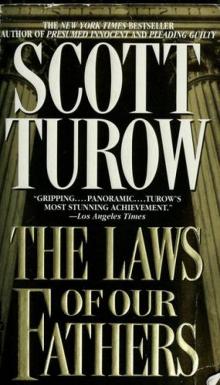 The Laws of Our Fathers
The Laws of Our Fathers Ordinary Heroes
Ordinary Heroes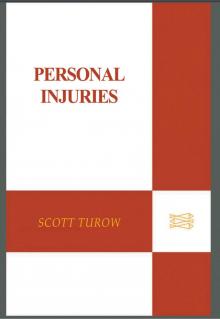 Personal Injuries
Personal Injuries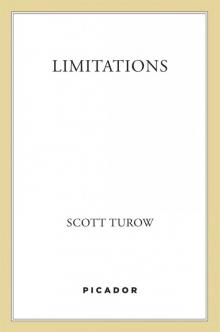 Limitations
Limitations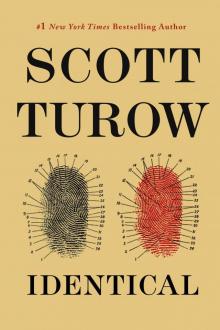 Identical
Identical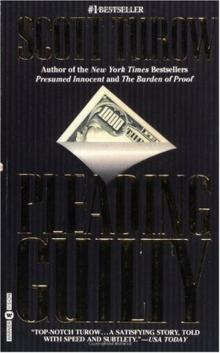 Pleading Guilty
Pleading Guilty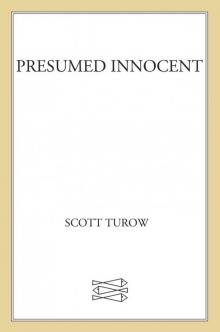 Presumed Innocent
Presumed Innocent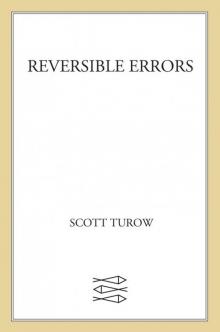 Reversible Errors
Reversible Errors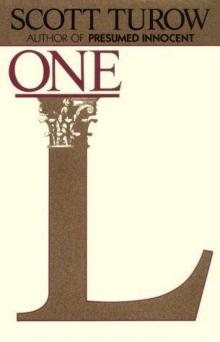 One L: The Turbulent True Story of a First Year at Harvard Law School
One L: The Turbulent True Story of a First Year at Harvard Law School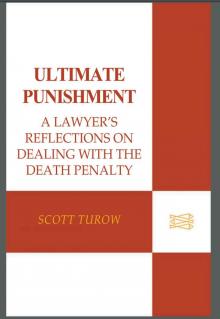 Ultimate Punishment
Ultimate Punishment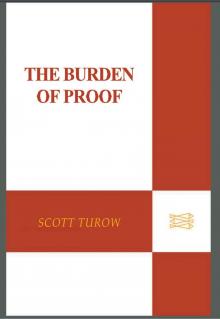 The Burden of Proof
The Burden of Proof Ordinary Heroes (2005)
Ordinary Heroes (2005)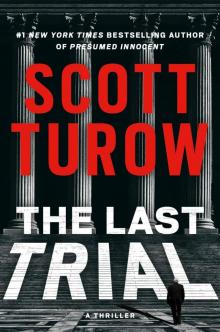 The Last Trial
The Last Trial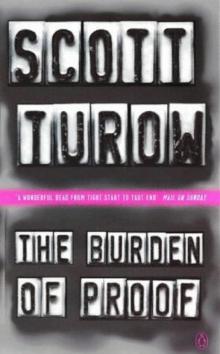 The Burden of Proof kc-2
The Burden of Proof kc-2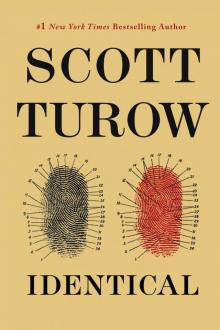 KC09 - Identical
KC09 - Identical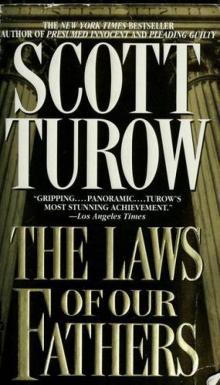 The Laws of our Fathers kc-4
The Laws of our Fathers kc-4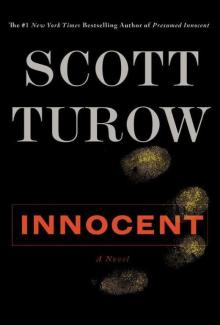 Innocent kc-8
Innocent kc-8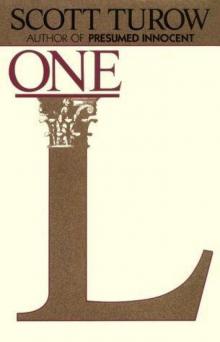 One L
One L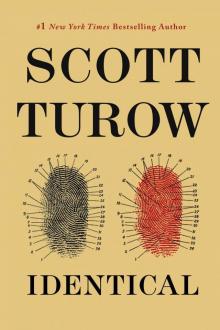 Identical kc-9
Identical kc-9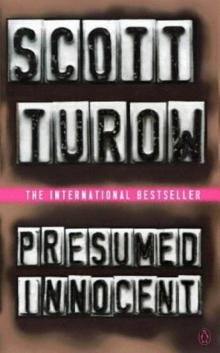 Presumed innocent kc-1
Presumed innocent kc-1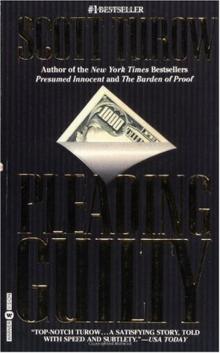 Pleading Guilty kc-3
Pleading Guilty kc-3 One L (1977)
One L (1977)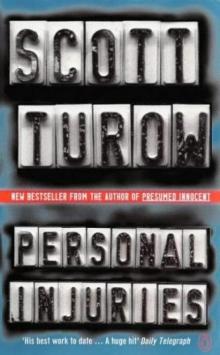 Personal injuries kc-5
Personal injuries kc-5